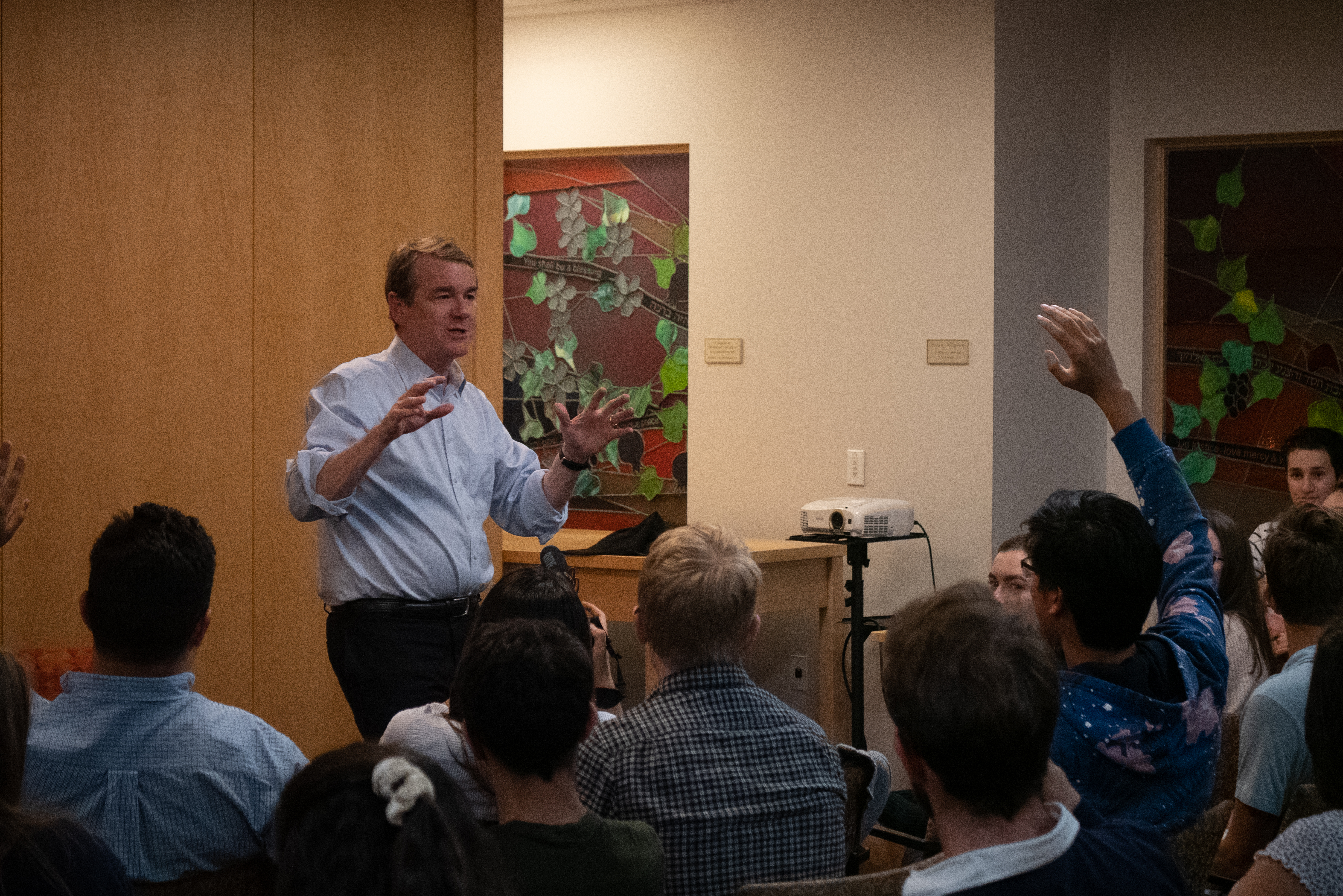U.S. Sen. Michael Bennet (D-CO) sat down with a group of around 60 students on Wednesday night in a question and answer session hosted by Stanford Democrats. Bennet, a 2020 Democratic primary candidate who has also been the senator of Colorado since 2009, placed a heavy emphasis on moderatism and winning congressional seats in swing states during his talk.
“We don’t have to accept the inequities in the system,” he said, citing statistics that the Denver public school system went from ranking last among those in Colorado to one now performing above state averages, which Bennet characterized as outcomes similar to those one would see if students were in school for an additional 60 days each year for three years.
Bennet was previously superintendent of the Denver public school system before being appointed to a vacant Senate seat in 2009.
Bennet’s path to political prominence has been unusual, and in that vein, Bennet encouraged students with political aspirations to “find something you’re really passionate about,” but “don’t spend your life plotting how you’re going to climb the political ladder since that will probably end in misery and life is too short for that.”
Bennet opened his talk on a casual and lighthearted note. Entering Kehillah Hall at Stanford Hillel, he paused to embrace an audience member he knew, joking, “Sorry, just taking care of some important business here.” He went on to thank the crowd for coming since, “depending on what polls you listen to, I’m at one, two, three, or even 0%” in the Democratic primaries.
Soon after, Bennet shifted focus to address more serious topics. He referenced increasing difficulties for middle class Americans in affording housing, healthcare and education, concluding that these factors all contributed to President Donald Trump’s election.
“Our democracy is profoundly at risk,” Bennet said, “But it was at risk before Donald Trump became president. In a place we call the land of opportunity, we need to do much better.”
Bennet also took time to comment on recent political debates. He affirmed Twitter’s Wednesday decision to ban political advertising, called for more regulation on corporate political donations and pushed back on China’s actions against Hong Kong protestors.
A theme of the night was Bennet’s commitment to pragmatic and moderate action.
His centrist political stance was highlighted by position on the healthcare coverage options debate. Bennet characterized plans to eliminate private insurance as “brain dead” saying, “I don’t want to spend a 10-year losing battle fighting for Medicare for All. I want to spend 10 years fighting for kids in the Denver public schools and kids like them all over the country who aren’t getting a decent education.”
Repeatedly referring to Senator Bernie Sanders (D-VT) as “my friend Bernard,” Bennet went on to criticize the tax increases that such a policy would incur and argued that the time spent on pushing for the policy would be better spent attempting other reform.
On climate change as well, Bennet emphasized a need for moderation. While in the short term, Bennet said he supported investment in clean energy and incentives for farmers to sequester carbon, he noted that he would not take part in efforts to strong-arm Congress into passing climate reform.
“I don’t think that makes me some terrible moderate,” he said. “These are the institutions we need to preserve. And taking those actions is tantamount to saying a democracy can’t address climate change, or criminal justice reform, or anything else.”
Bennet closed the night by urging students to get out the vote.
“If you don’t remember anything from tonight, and you might not since I might be the most boring politician alive,” Bennet said, “Remember that what you do between now and next November to get people to the polls to make sure every eligible person votes is crucial so that we can get over our broken politics. You can’t wait for my generation; you need to start now.”
